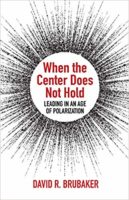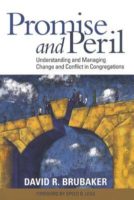In March of this year Gallup released survey results showing that fewer than half of Americans belong to a religious congregation—the lowest percentage ever recorded. Yet despite declining participation, congregations offer valuable gifts to their members and their surrounding communities.
The following are the primary gifts I’ve observed in consulting with (and participating in) congregations around the country:
1. Social Capital
According to Robert Putnam in Bowling Alone, “Faith communities in which people worship together are arguably the single most important repository of social capital in America.” Many who move to a new community find valuable social connections in a local synagogue, mosque, or church.
While there are certainly other venues besides congregations where individuals and families can forge significant social connections, there is no other institution with such a pervasive presence in local communities. Congregations bring people together with a shared purpose every Friday, Saturday, or Sunday—and those regular gatherings tend to produce durable social bonds.
2. Values Formation
Our individual values are shaped in our family of origin, our educational experiences, and our peer groups. For many, values are also formed in the context of a local congregation. Several core values appear in nearly every major religion, including the following listed on the website LifeHacker:
- The Golden Rule
- Concern for the Poor
- Meaning Over Money
- Commitment to Community
- Personal Responsibility
While there are individual congregations and even some denominations that practice a more exclusive and fear-based approach to religion, that is not the thrust of the major religions or of the majority of congregations. Since values are “caught more than taught,” regular participation in the life of a healthy congregation can reinforce positive values modeled in the home.
3. Culture Production
Mark Chaves’ massive study Congregations In America revealed that the most universal aspect of congregational life is that they produce culture. While the press pays more attention to the social and political activities of congregations, “congregations mainly traffic in ritual, knowledge, and beauty through the cultural activities of worship, religious education, and the arts.”
For the great majority of Americans who are not regular patrons of the arts, congregations offer an accessible venue to experience music, ritual, drama, and storytelling. Granted, the drama may consist of elementary-age children reenacting the Christmas story, but even that illustrates one of a congregation’s most important functions—a place for children to learn how to perform musically, read scripture, or reenact sacred stories in a public context.
When a Gift is Tarnished
Although social capital, values formation, and culture production are vital contributions of nearly all congregations, these gifts each have a dark side. Taken to an extreme, the social bonding function of a congregation can turn exclusive and become enmeshed. A congregation can also model destructive values such as racism and patriarchy just as effectively as the positive values of love for neighbor and care for the poor. Finally, culture production can be coopted either by extreme professionalism on one hand or painful amateurism on the other.
Yet somehow these great gifts of a congregation continue to draw millions each week to a local congregation, even if members primarily gathered online during the pandemic. While many adherents believe that their weekly practice will yield cosmic rewards, the very quotidian functions of social bonding, values formation, and culture production may also prove to be of lasting value.
Participation in religious congregations may be declining in this country, but those who continue to participate can celebrate the gifts of a congregation.
David Brubaker has consulted with organizations and congregations in the U.S. and a dozen other countries on organizational development and conflict transformation. He is the author of Promise and Peril, on managing change and conflict in congregations, and When the Center Does Not Hold, on leading in an age of polarization. David recently retired from his role as Dean of the School of Social Sciences and Professions at Eastern Mennonite University, and is now a Professor Emeritus of Organizational Studies.



